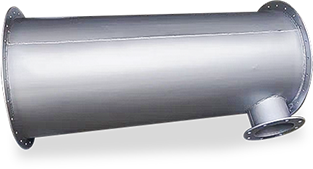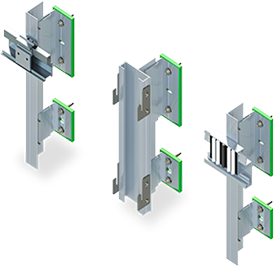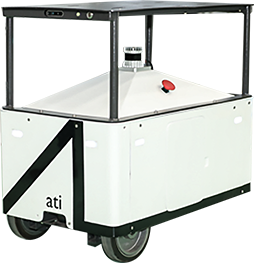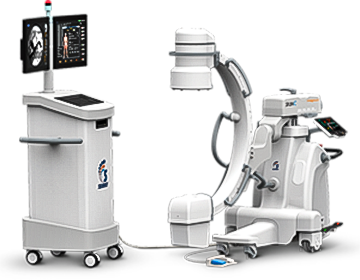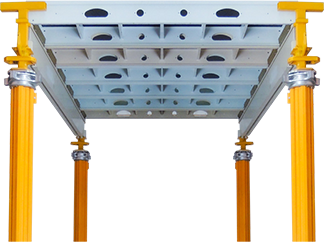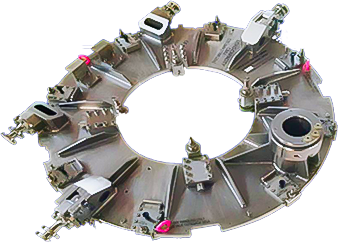
With the potential to reach $50 billion by 2030, the Indian medical devices industry represents one of India’s most sought-after manufacturing sectors. It can possibly grow 28 per cent each year, thanks to numerous factors, including increasing domestic and international demand, policy push by the Government, technological advancements, and many other factors.
Among all factors, one of the biggest reasons is the change brought in the medical technology industry by recent tech trends defining the future of MedTech in India and the world. India is one of the largest medical device markets in Asia and the world and is also one of the preferred manufacturing spots for different kinds of medical exports.
In this blog, we explore medical technology manufacturing trends fueling India’s current medical technology manufacturing revolution.
#1 Medical robots in surgery, labs, hospital operations, recovery and more
From performing surgical operations to helping nurses with general hospital operations, robots have become part of standard hospital operations nowadays. Robots are helping solve the shortage of nurses globally by automating some essential functions.
With options for additive manufacturing, the speed of innovation for different robot types has increased. Some examples are:
- Camera arm surgical robots
- Robots to help patients get out of bed
- Robotic prosthetics
- Laboratory robots
- Sanitation robots
- Sanitation robots to help with recovery
- Robotic surgical instruments
#2 The exponential growth of medical wearables
Medical wearables have become a part of our lives, giving India a colossal manufacturing push. From just helping people monitor basic medical stats, medical technology devices have come a long way and are now helping save lives with early medical technology diagnostics.
The current trend includes manufacturing sophisticated variants of:
- Wearable fitness trackers
- Health smartwatches
- Biosensors
- Wearable glucose monitors
- Wearable ECG monitors
#3 3D printing Patient-Specific Medical Devices and Rapid tooling
3D printing has been changing how things work in almost every industry, and in the medical technology sector, it is changing lives (literally). Many hospitals use 3D printers to print patient-specific devices or body part alternatives like prosthetics.
Some examples include:
- Custom-made hearing aids
- Custom prosthetics
- Orthotics
- Dental implants and crowns
Rapid tooling is also used to create medical device prototypes and test variations. This enables medical devices companies to reduce R&D costs while increasing the speed of innovating newer models based on consumer needs.
#4 Minimally invasive surgery (MIS) devices
Technology and modern medical technology manufacturing have changed how surgeries are done, and MIS devices are the perfect example.
MIS devices have reduced the size of incisions needed, making recovery after surgeries a lot quicker. In some cases, MIS devices are combined with robotic operations to simplify surgeries.
#5 The concept of the Internet of Medical Things (IoMT)
Also known as healthcare IoT, IoMT combines the inputs from medical devices like wearables with software technologies to monitor your health data.
Companies are manufacturing various biosensors and devices, including wearables used to measure vitals and other info based on the patient’s health needs.
The data generated is then analysed using data analysis software to help doctors better understand health issues and provide effective diagnoses of health-related problems.
#6 3D bioprinting
3D bioprinting, as the name suggests, is the 3D printing of biomaterials instead of metals or other materials used in traditional 3D printing. It has been improving over time, and we are heading towards a time when 3D bioprinting will be able to print all body organs.
3D bioprinting intends to reduce the long wait times for organ transplants worldwide. It is widely used for drug testing and development.
#7 Manufacturing VR devices for Medical training, marketing, and awareness
Just like other sectors, VR devices are redefining traditional processes in the medical world. VR devices create immersive experiences for students with virtual scenarios to learn about the human body and surgical operations. Students can access hundreds of case studies and explore the inside of the human body multiple times, helping with their learning curve.
Prototypes of these VR devices are often 3D printed to enable innovation.
Similar immersive experiences are helping people with effective medical marketing and awareness.
#8 Digital therapeutics
Digital therapeutics is a trending term that combines various futuristic medical technologies that are used to treat, manage, and prevent medical challenges.
The term includes numerous software and devices used to treat almost every health challenge. An example is a set of diabetes care devices, virtual physician meetings, diabetes management education, and digital support, which, when combined together, enables better management of diabetes.
Karkhana.io helps companies and startups adopt these trends with simplified and accessible digital manufacturing
The medical technology manufacturing industry is growing exponentially, which means innovations are popping out very frequently. However, medical technology companies and startups face many challenges in connecting with reliable manufacturers who can help them manufacture new-age medical technology devices without limitations of huge order volumes or compromising on past medical technology manufacturing experience or technical know-how.
Karkhana.io is solving this challenge through its digital manufacturing platform. We have built several types of medical technology devices, like the Dozee Pod for Dozee health, the Inito monitor for Inito, devices for Kokilaben Dhirubhai Ambani Hospital, devices for LV Prasad Eye Institute, medical equipment for stryker, and numerous other healthcare companies and startups.
Our platform takes into account every manufacturing need and current challenges for companies for an effortless manufacturing experience. You can access easy and quick quotations, DfM feedback via our expert engineers, end-to-end project management, regular QC, audits of suppliers, logistics, and more, all within the platform.
Want to avail of all this for your medical technology manufacturing? Start by registering on our digital platform.




